Raspberry, also known as Rubus idaeus, is an edible fruit rich in Fibre and Vitamin C. These nutrients are essential for the smooth functioning of the human body. But what about our guinea pigs? Can guinea pigs eat raspberries?
Yes, Guinea pigs can eat raspberries as it is an excellent source of dietary fiber and Vitamin C. However, it also contains sugar, which is not so good for guinea pigs. So we must only serve a small serving of raspberries to our guinea pigs.
Although raspberries are an excellent source of vitamin c and fiber for the human being, It might not be the best choice for our guinea pigs.
Raspberries can’t be served daily to our guinea pigs as they contain a good amount of sugar, which can lead to various health issues in our guinea pigs.
With that out of the way, you must be thinking about how often you can feed raspberries to our guinea pigs and the benefits and hazards of serving raspberries to our guinea pigs.
Don’t worry; we have everything covered for you from top to bottom. Let’s dive into more details.
Nutrition in raspberries?
Sources: USDA National Nutrient database
| Nutrients | Amount |
|---|---|
| Water | 86.75gms/100gms |
| Protein | 1.2gms/100gms |
| Fibre , total dietary | 6.5gms/100gms |
| Sugars ,total including NLEA | 4.42gms/100gms |
| Sucrose | 0.2gms/100gms |
| Calcium | 25mg/100gms |
| Iron | 0.69mg/100gms |
| Magnesium | 22mg/100gms |
| Potassium | 151mg/100gms |
| Copper | 0.09mg/100gms |
| Pantothenic acid | 0.329mg/100gms |
| Vitamin C ,Total ascorbic acid | 26.2mg/100gms |
| Vitamin B-6 | 0.055mg/100gms |
| Fatty acids, total saturated | 0.019gms/100gms |
| Choline ,total | 12.3mg/100gms |
Raspberry is a delicious fruit that is rich in color and has a sweet juicy taste. It is also an excellent source of vitamins, minerals, and antioxidants.
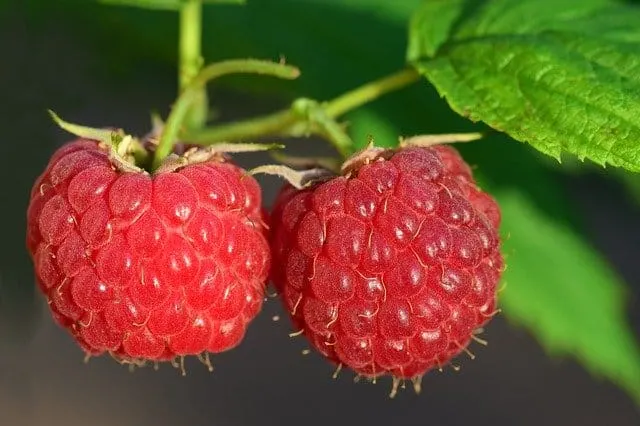
Now let’s have a look at some essential nutrients of raspberries:
- Vitamin C: Raspberries are an excellent source of Vitamin C. Vitamin C, which is also known as ascorbic acid, is essential for the growth, development, and repair of all body tissues. It is a crucial nutrient for the immune system of the body as well.
- Vitamin A: Raspberries also contain a small amount of vitamin A. It helps to promote healthy growth and reproduction in our body. Vitamin A also reduces the risk of a certain type of cancer and prevents other major health issues in the body.
- Fiber: Raspberries are an excellent source of dietary fiber. Dietary fiber plays a vital role as it helps to maintain lower cholesterol levels and control blood sugar levels. It also helps to aid our digestive system. So, we can say that dietary fiber is an essential requirement of the body.
- Manganese: Raspberries also contain a good amount of magnesium. Magnesium has numerous benefits for the body. It helps to prevent neuro diseases and also benefits against type 2 diabetes. It also helps to boost exercise performance and aids in fighting depression.
- Calcium: Raspberries also hold a good amount of calcium in it. You can say that calcium works as a fuel for the proper functioning of the body. Calcium is a mineral that is very much required for the formation of bones and tissues in the body.
- Potassium: Raspberry has good potassium, which is one of the essential minerals in the body. A diet that contains good potassium helps reduce blood sugar and maintain water retention capacity. Potassium also works as a shield against strokes and helps to prevent kidney stones.
- Protein: Raspberry also contains a decent amount of protein in it. It has many benefits as it helps to reduce appetite and hunger levels. Our body uses protein to make enzymes and other chemicals. Protein should always be taken in a moderate amount as excessive intake of protein is stored as fat by our body.
Are raspberries poisonous to guinea pigs?
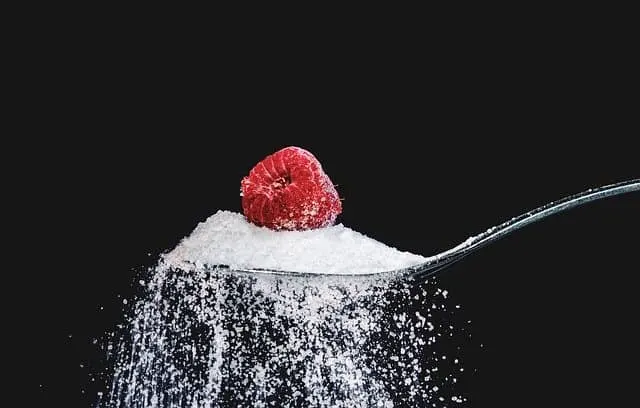
Raspberries are absolutely safe for our little guinea pigs as it contains a perfect balance of all the necessary vitamins and minerals. Raspberry is a rich source of Vitamin C and Dietary fiber for our guinea pigs.
But one major drawback of the fruit is that it contains a high amount of xylitol compared to other fruits, which can lead to various health problems for our guinea pigs.
So, the question that arises in our mind is what health problems our guinea pigs can face if we feed excessive amounts of raspberries.
Let’s learn about some significant health issues that can be faced by our guinea pigs:
- Hypoglycemia: Hypoglycemia is a disease that is caused by consuming high sugar foods or drinks. It is a condition where your blood sugar level becomes lower than usual. Likewise, in humans, hypoglycemia can be a severe threat to our little guinea pigs as well. It can lead to dreadful weight loss and many other problems which is not a good sign for our little guinea pigs.
- Stomach Ache: Raspberry contains a good amount of sugar and fiber, which if taken excessively, can upset the stomach of our guinea pigs. The excessive fiber in the diet of our guinea pigs can lead to pains, gases, and cramps, which can trouble them a lot. So we should always feed them with a moderate quantity of fruits like raspberries.
- Urinary Infection: One of the critical minerals of raspberry named calcium can also be a threat to our little guinea pigs. As the need for calcium decreases with the age of our guinea pigs. Calcium is required more at a young age for the formation of bones. If our grown cavies intake excessive calcium, it may result in several urinary problems like urinary stones, pain, or infections in the urinary tract.
- Diabetes: Adding excessive fruits and treats to our guinea pigs can lead to diabetes. As raspberry contains a good amount of sugar, it can cause diabetes if served in an excessive quantity.
Are raspberries good for guinea pigs?
Yes, raspberries are good for our guinea pigs as it is an excellent source of Vitamin C and antioxidants, which helps our little guinea to stay healthy and active.
However, we must serve it in an adequate quantity to avoid any health issues.
Let us learn about some benefits of raspberries for our guinea pigs:
- Prevention of scurvy: Vitamin C is an essential nutrient required by our little guinea pigs. Raspberry is a good source of Vitamin C, and it can give a lot of health benefits to our guinea pigs if served moderately. It also helps in preventing severe health issues like Scurvy in them.
- Helps keep the heart healthy: Raspberry also helps to improve the heart health of our guinea pigs. According to studies, it is confirmed that raspberries are remarkable for heart health, and it also helps to reduce blood pressure resulting in the lower risk of a heart attack in our little guinea pig.
- Fights against diseases: Raspberries contain strong antioxidants that lower the risk of any disease. Antioxidants are substances that play a vital role in protecting the body from critical health issues like health problems, cancer, etc.
- Hydrates the body: Raspberry contains a good amount of water, which can help our little guinea pigs to remain hydrated. Water is very much required for our guinea pigs to stay healthy and active throughout the summer. It also helps prevent heat stroke in our guinea pigs.
How often can I feed raspberries to my guinea pigs?
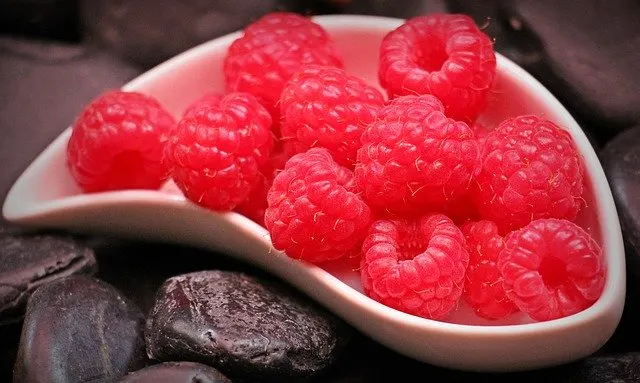
We can serve raspberries twice a week to our guinea pigs, but in a moderate way as moderation is a key for good health.
Raspberries contain a good amount of sugar in it, so serving in excess quantity can be a terrible idea.
Raspberries should always be served as a treat to guinea pigs but should not be included in their regular diet.
Our guinea pig’s daily diet must include fresh hay and some fresh leafy vegetables for a long & healthy life.
How many raspberries can I feed to my guinea pigs?
Your guinea pigs can have one or two raspberries twice a week, considering that the serving is not done on two consecutive days.
For example, if you feed once on Tuesday, the next feeding should not be before Friday.
Remember that the overfeeding of raspberries can lead to serious health problems for your guinea pigs as they contain a decent amount of sugar and calcium.
It is recommended to serve raspberries just as a treat and follow it with veggies like lettuce, bell peppers, cucumber, zucchini, carrots, etc. to create a healthy and balanced diet for your guinea pigs.
Can guinea pigs eat raspberry leaves?
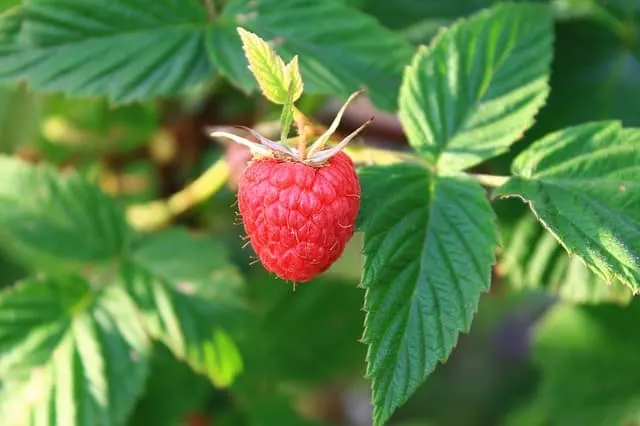
Yes, Guinea pigs can eat raspberry leaves as they do not contain sugar or any harmful element in it.
Raspberry leaves and all other berry leaves can be served and are perfectly safe for guinea pigs as they contain essential nutrients and vitamins which provide many health benefits.
However, before serving raspberry leaves to your guinea pigs, you must wash them properly as they can contain some pesticide. These can be toxic to our guinea pigs and must be removed at all costs.
Can guinea pigs eat raspberry juice?
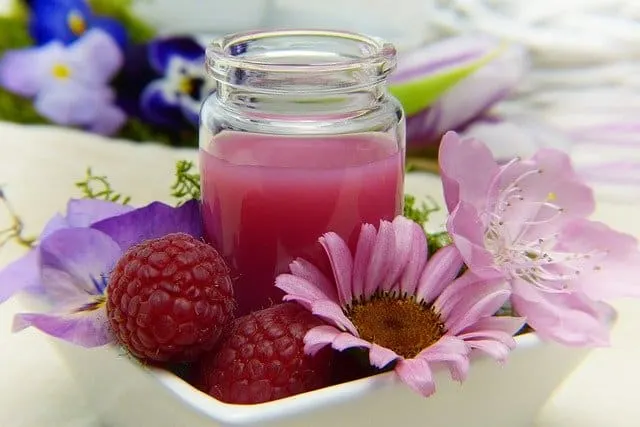
Well, serving raspberry juice to guinea pigs is not a great idea. Raspberry is a fruit that contains a good amount of sugar and should be served on a moderate basis.
So, on that note, serving raspberry juice does not sound acceptable to our guinea pigs, as sugar concentration will be higher in the juice.
Raspberry should be given in just one or two pieces only twice a week as a treat to guinea pigs.
Can guinea pigs eat frozen raspberry?
Yes, guinea pigs can eat frozen raspberries once they have thawed and are brought to room temperature.
But you must consider that serving frozen fruits and vegetables can cause stomach issues to your guinea pigs if not thawed properly.
Frozen fruits also lose some of their nutrition compared to fresh fruit. So, you must try to serve fresh raspberries to your guinea pigs, if possible.
Can guinea pigs eat Dried raspberry?
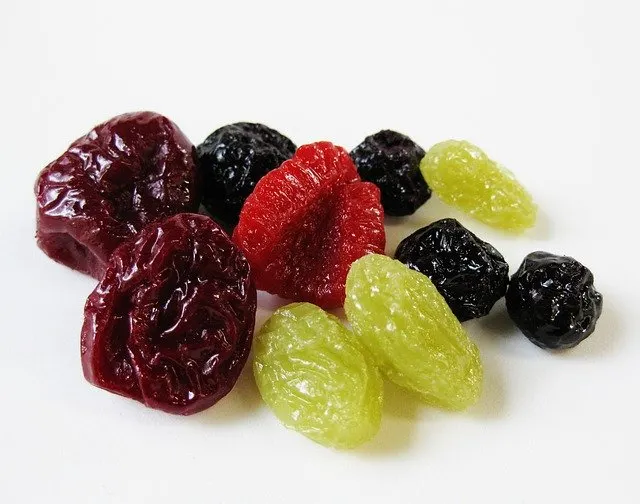
No, guinea pigs cannot be served with dried raspberries.
According to studies, dried raspberries contain approx five times more sugar as compared to raw raspberries.
Thus, Serving dried raspberries to guinea pigs can lead to significant health issues in our guinea pigs.
Can guinea pigs eat canned raspberries?
No, guinea pigs cannot eat canned raspberries.
Canning fruits contain extra sugar or salt, color, preservatives, and many other ingredients that may be harmful to our guinea pigs.
So, Guinea pigs should be served raw raspberries instead of canned raspberries to avoid any type of health issues in our guinea pigs.
How To Prepare Raspberries For Your Guinea Pigs?
There are some simple steps you should consider before preparing raspberries for your guinea pigs.
- Pick a ripe raspberry for your guinea pig. Ripe raspberries are brightly colored, and if the berries are attached with green caps, they are not ready yet.
- After picking up a ripe raspberry, you should wash it properly to clean all the surface dirt and must make sure that the berries are clean.
- After washing your berries, you can cut it into small pieces, so your guinea pig does not face any kind of problem while having its treat.
- And lastly, you need to remove any leftover fruits or vegetables from the cage so that proper hygiene can be maintained in your guinea pig sweet home.
Conclusion : Guinea pigs and Raspberries
- Raspberries are a rich source of Vitamin C, Potassium, and other antioxidants required by our guinea pigs.
- Can Guinea Pigs Eat Raspberries? Yes, guinea pigs can eat raspberries.
- It would be better if you only serve one to two pieces at a time. Excess serving can be a terrible idea.
- Never Feed raspberries more than twice in a week.
- You can serve raspberries leaves to guinea pigs as they do not contain sugar. Raspberries leaves can be served daily to guinea pigs.
- If the raspberries are non-organic, you must wash them properly to remove pesticides and avoid the harmful effects.
- Avoid feeding raspberries juice as it contains a good amount of sugar.
- Overfeeding raspberries to your guinea pigs can lead to significant health issues like hypoglycemia, heart problems, and urinary issues.
- Can guinea pigs eat dried raspberries? No guinea pigs cannot be served with dried raspberries as they contain five times more sugar than raw raspberries.
- You must always remember that fruits are only served as occasional treats to guinea pigs. Their regular diet must include hay and a small portion of fresh veggies.
- Can guinea pigs eat canned raspberries? No guinea pigs cannot eat canned raspberries as it contains color, preservatives, salt or sugar, and many more other ingredients that can cause significant health issues to our guinea pigs.
- Overall, Guinea pigs can be served with raspberries only twice a week in a moderate quantity. If served appropriately, raspberries have a lot of benefits for our guinea pigs.
Sources: Diabetes in guinea pigs, Raspberries Benefits, Nutrition in raspberries, Health benefits of raspberries, Diet Composition and Mineral Balance in Guinea Pigs, Dietary Vitamin C, and Vitamin E on Guinea Pig Immune Responses to Mitogens, Vitamin C requirements of the guinea-pig, Is Your Guinea Pig’s Diet Providing the Right Nutrients? Care of Guinea Pigs.
Similar Posts:
- Can Guinea Pigs Eat Papaya? (Hazard, Serving Size & More)
- Can Guinea Pigs Eat Dragon Fruit? (Hazards, Serving Size & More)
- Can Guinea Pigs Eat Sugar Snap Peas? (Hazards, Serving Size & More)
- Can Guinea Pigs Eat Guava? (Hazards, Serving Size & More)
- Can Guinea Pigs Eat Plums? (Hazards, Serving Size & More)
